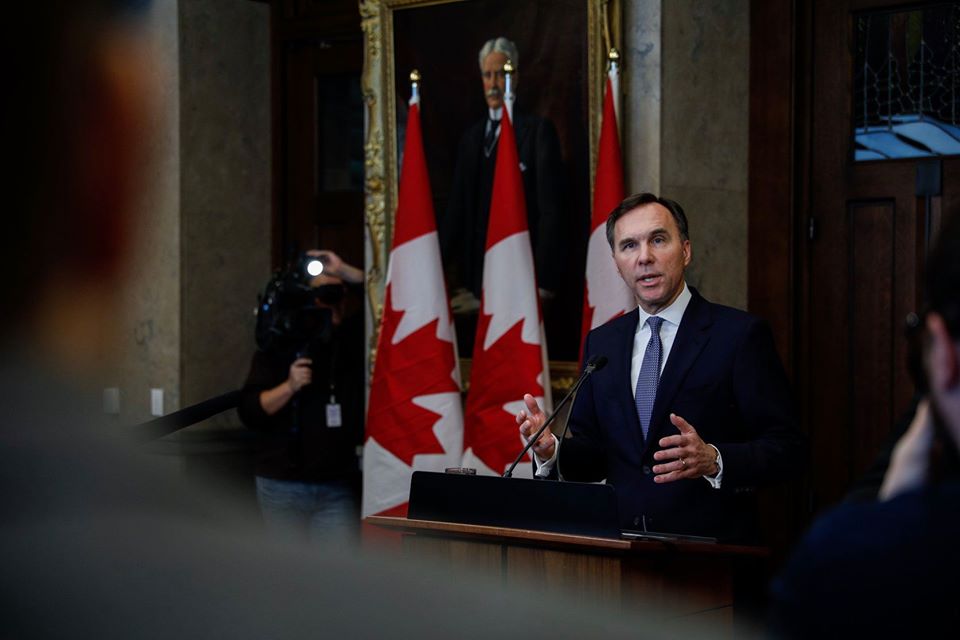
May 29, 2020 – Ottawa, Ontario – Department of Finance Canada
The Government of Canada is taking strong, immediate, and effective action to protect Canadians and businesses from the impacts of the COVID-19 pandemic.
Due to the pandemic’s effects on the economy, some federally regulated pension plan sponsors are facing significant financial constraints. To provide temporary relief to sponsors of federally regulated, defined benefit pension plans, on April 15, 2020 the government announced a moratorium on solvency special payments.
Today, Finance Minister Bill Morneau announced the coming into force, on May 27, of the government’s Solvency Special Payment Relief Regulations, 2020, which establish the moratorium.
This relief will help ensure that employers have the financial resources they need to maintain their operations and their pension plans, and to protect the retirement security of their workers and retirees.
Under the regulations, from today until December 30, 2020, federally regulated defined benefit pension plan sponsors are not required to make solvency special payments. The regulations also provide accommodations for solvency special payments made since April 1, 2020.
Today’s announcement is part of the Government of Canada’s COVID-19 Economic Response Plan, which is addressing the challenges facing Canadians and their employers during this time of global uncertainty. The government continues to assess and respond to the impacts of COVID-19, and stands ready to take additional actions as needed to stabilize the economy and mitigate the impacts of the pandemic.
Quotes
“A secure and dignified retirement for Canadians after a lifetime of hard work has always been a priority for the government, and even more so during this challenging period. These new regulations will provide temporary relief to federally regulated pension plan sponsors, which will help to support plan sponsors so that they are able to continue to protect the retirement security of workers and retirees.’’
– Bill Morneau, Minister of Finance
Quick facts
- The Pension Benefits Standards Regulations, 1985 require sponsors of federally regulated pension plans with funding deficiencies to make solvency special payments to eliminate these deficiencies over a period of five years.
- The Solvency Special Payment Relief Regulations, 2020 provide funding relief to plan sponsors whose pension plans have a solvency deficiency, and are normally required to make monthly payments to fund the deficiency and/or address their obligations through the use of letters of credit.
- The government has taken action to support Canadian businesses through the outbreak of COVID-19, with targeted new initiatives:
- The Canada Emergency Commercial Rent Assistance (CECRA) for small businesses, which will provide a forgivable loan to qualifying commercial property owners, who in turn give a rent reduction of at least 75 per cent for April and May (retroactive) and June to impacted small business tenants who have experienced at least a 70 per cent drop in pre-COVID-19 revenues.
- Launching the Canada Emergency Wage Subsidy (CEWS) calculator to support employers as they prepare to apply for the CEWS. On April 27, 2020, the Canada Revenue Agency launched the application process for the CEWS. The CEWS applies at a rate of 75 per cent of the first $58,700 normally earned by employees—representing a benefit of up to $847 per week, per employee. The program is in place from March 15 to August 29, 2020. Employers of all sizes and across all sectors of the economy are eligible, with certain exceptions.
- Providing support to businesses through the Business Development Bank of Canada (BDC) and Export Development Canada (EDC) under the Business Credit Availability Program (BCAP). As part of this program, EDC and BDC will provide direct lending and other types of financial support at market rates to otherwise viable businesses and organizations whose access to financing may be restricted. By working in close cooperation with financial institutions, this program is filling gaps in market access and leveraging additional lending by private sector institutions. Employers with a total payroll of $20,000 to $1.5 million in 2019 will also be eligible to access the Canada Emergency Business Account, which will provide interest-free, partially forgivable loans of up to $40,000 to small businesses, including not-for-profits.
- Allowing businesses, including self-employed individuals, to defer all Goods and Services Tax/Harmonized Sales Tax (GST/HST) payments, as well as customs duty payments owed for imports, until June. This measure is the equivalent of providing up to $30 billion in interest-free loans to Canadian businesses. It will help businesses so they can continue to pay their employees and their bills, and help ease cash-flow challenges across the country.
- Deferring the payment of income taxes. The government is allowing taxpayers to defer, until after August 31, 2020, the payment of income tax amounts that become owing on or after March 18 and before September 2020. This relief, amounting to $55 billion in liquidity support, would apply to new balances due, as well as instalments, under Part I of the Income Tax Act. No interest or penalties will accumulate on these amounts during this period.